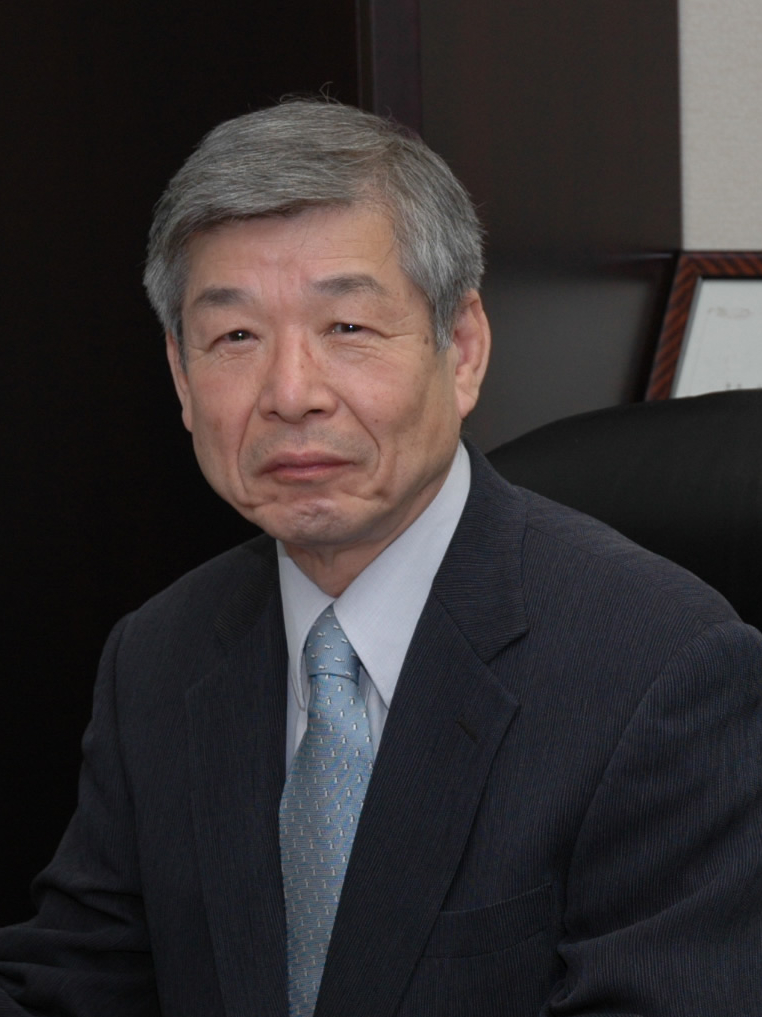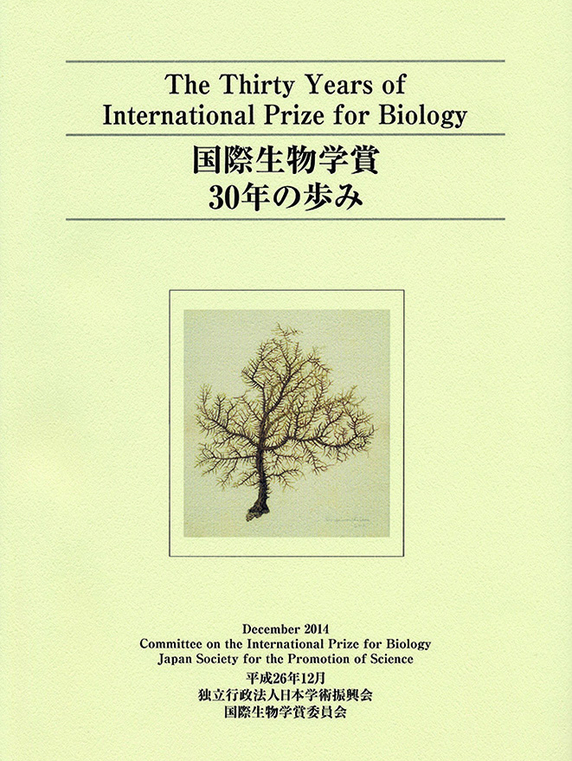International Prize for Biology
30th Commemorative Booklet
A commemorative booklet, titled “The Thirty Years of International Prize for Biology”, has been issued to celebrate the 30th anniversary of the Prize in 2014. It contains the history of the Prize and essays written by last ten Prize recipients.

International Prize for Biology Marks Its 30th Anniversary
The thirtieth award of the International Prize for Biology was made in 2014, marking the third decade of the Prize’s operation.
The Prize was initially created to commemorate the 60th year of Emperor Showa’s reign and his over long years of biological research. From the 25th Prize, it has also commemorated Emperor Akihito’s contributions to the Prize’s advancement and to his dedication to fish taxonomical research. In both cases, the Prize is meant to encourage frontier research in the biological sciences.
Over these 30 years, many changes have occurred in the realm of biology. Amidst them, the International Prize for Biology has continued steadfastly to support research at the bedrock of the biological sciences while contributing to the advancement of biological sciences by recognizing researchers who have made eminent contributions to its progress. As an award in a region of biological science oriented to “science for science,” the Prize works to advance uniquely original and creative forms of basic biological research.
There are other international awards issued from Japan, including those that recognize biology-related achievements. However, they each have a specific focus and underlying philosophy that differs from those of the International Prize for Biology. They include awards in such areas as technological development, environmental science, and integrated research.
Having been highly appraised from various perspectives, there are International Prize for Biology recipients who have been honoured with other prestigious awards. For example, Dr. Peter Hamilton Raven, who received the second International Prize for Biology in 1986, and Prof. Edward Osborne Wilson, who received the ninth in 1993, were awarded the International Cosmos Prize in 2003 and 2012. That is, expanding up on the research achievements for which they were recognized by the International Prize for Biology, they gained further recognition for their results in wider areas of endeavour. As another example, Prof. John Bertrand Gurdon, who received the third International Prize for Biology in 1987, went on to be awarded the Nobel Prize in 2012. He was given the International Prize for Biology for his landmark work on amphibia; then, was recognized again a quarter of a century later for his highly appraised research on embryonic stem cells. Such cases testify to the keen foresight inherent in the International Prize for Biology.
I look forward to the further development of the International Prize for Biology and to its continued contribution to advancing basic research in the biological sciences.
(Photo: Dr. Kunio Iwatsuki, chair of the Publication Committee)
The Prize was initially created to commemorate the 60th year of Emperor Showa’s reign and his over long years of biological research. From the 25th Prize, it has also commemorated Emperor Akihito’s contributions to the Prize’s advancement and to his dedication to fish taxonomical research. In both cases, the Prize is meant to encourage frontier research in the biological sciences.
Over these 30 years, many changes have occurred in the realm of biology. Amidst them, the International Prize for Biology has continued steadfastly to support research at the bedrock of the biological sciences while contributing to the advancement of biological sciences by recognizing researchers who have made eminent contributions to its progress. As an award in a region of biological science oriented to “science for science,” the Prize works to advance uniquely original and creative forms of basic biological research.
There are other international awards issued from Japan, including those that recognize biology-related achievements. However, they each have a specific focus and underlying philosophy that differs from those of the International Prize for Biology. They include awards in such areas as technological development, environmental science, and integrated research.
Having been highly appraised from various perspectives, there are International Prize for Biology recipients who have been honoured with other prestigious awards. For example, Dr. Peter Hamilton Raven, who received the second International Prize for Biology in 1986, and Prof. Edward Osborne Wilson, who received the ninth in 1993, were awarded the International Cosmos Prize in 2003 and 2012. That is, expanding up on the research achievements for which they were recognized by the International Prize for Biology, they gained further recognition for their results in wider areas of endeavour. As another example, Prof. John Bertrand Gurdon, who received the third International Prize for Biology in 1987, went on to be awarded the Nobel Prize in 2012. He was given the International Prize for Biology for his landmark work on amphibia; then, was recognized again a quarter of a century later for his highly appraised research on embryonic stem cells. Such cases testify to the keen foresight inherent in the International Prize for Biology.
I look forward to the further development of the International Prize for Biology and to its continued contribution to advancing basic research in the biological sciences.
(Photo: Dr. Kunio Iwatsuki, chair of the Publication Committee)

